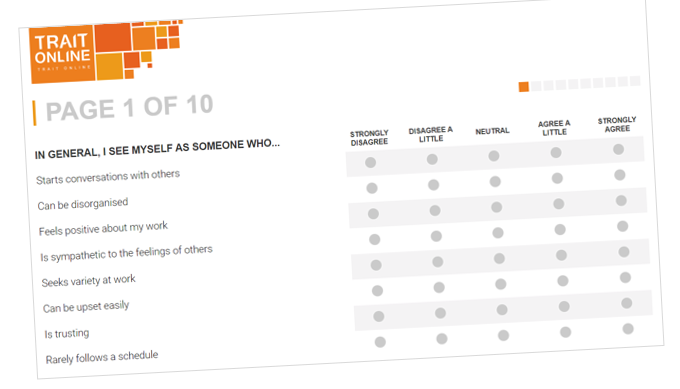Why it’s important
The term ‘Assessment Process’ covers online applications, telephone interviews, video interviews and face to face interviews. In order to ensure the best possible candidates are successful at each assessment stage consider:
Our Solutions
Process
Ensure the process is relevant and aligned to specific roles

Speed
Aim to keep the process fast moving and efficient to reduce drop out

Values Based Recruitment
Ensure the process can support VBR at each stage

Psychometric assessments
Consider the use of psychometric assessments to support your screening process

Tracking results
Tracking results is important to assist with candidate selection

Candidate engagement
Make sure the process maximises candidate engagement to reduce drop out
Things to consider
- Process – needs to be robust to support decision making, but so onerous that it puts candidates off.
In the social care sector we need to recruit 500,000 front-line workers by 2035, to keep up with current demand, therefore your process needs to be thorough, but swift – candidates will not wait around for you. We are also not likely to be able to recruit from only an experienced workforce, which is why most assessment processes incorporate Values Based Recruitment.
Have a look at the National Skills Academy social care values based recruitment toolkit here.
Skills for Care also have a number of resources and online events around values based recruitment which you can find here.
It’s worth thinking about your current assessment process first – are you reaching the right candidates for your business, are they getting through your recruitment process and performing well in post? Are you considering those with potential as well as experience? (It may be that your assessment process needs some attention if employees are not performing as well as you expect them to).
We believe that you should support candidates through your recruitment process as much as possible. You WANT them to do well, not trip them up! A good way of doing this is being really clear about the recruitment process they will go through, and to offer hints and tips for each stage to help them to give a good account of themselves, and also wish them luck at each stage, for example we know that good luck text messages are welcomed by candidates are a nice way of engaging them in your process.
We provide candidates with a couple of ‘hints and tips’ documents to support them with different stages of the recruitment process. You can see examples of these here. Application hints and tips (117 downloads ) Interview hints and tips (52 downloads )
- Application form – When creating your application form think about:
Creating questions that are relevant and give you valuable information about the candidate, pitched at the right level for the role. Only capture the information needed at the point it’s needed. For example; don’t ask for references or National Insurance Number at the start of a candidate’s recruitment journey!
Your online form should be short, easy to complete, mobile friendly and we’d also suggest not having a mandatory CV upload as many candidates won’t be able to do this from their phones.
Don’t use lengthy questions as these are likely to put candidates off (eg. supporting statements)
Capture inclusion and diversity information about your candidates on the form, to ensure you are open to applications from all. This will also help monitor whether your attraction is reaching everyone.
- Pre-screening/Telephone interview – sense check the criteria for the role
If your role requires a driving license – have they got one? If your role requires personal care are they prepared to do this? Can they commit to the shift patterns you operate?
Pre-screening is key to ensure only those candidates who meet your key criteria are interviewed for the role, saving both theirs and your manager’s time.
When interviewing candidates we suggest you use positive and negative indicators for each question to ensure consistency and best practice is applied, whoever is completing the interview. We have created a template for you to use here: Indicators template (42 downloads )
VBR questions are helpful to understand whether a candidate has the potential to do a good job where they don’t have experience to draw on. We have created some example VBR questions for you here: VBR example questions (105 downloads )
Consider conducting telephone interviews in the evenings or at weekends if you can, as candidates are often working and unable to speak during the day.
- Psychometric testing – ensure it is right for the role. There are many options, but not many specific for care
Some testing supports candidates to understand their strengths and development areas and helps managers by suggesting final stage interview questions based on the results for example Care Character, a PhD researched tool designed specifically for the care sector.
- Face to Face/Final Stage Interviews – take the opportunity to showcase your organisation
Why not give them a tour of your service? Involve your residents in the process? Introduce them to existing members of staff? Recruitment is a two-way process and it’s just as important for the candidate to decide you are the employer for them, as it is for you to decide they are the employee for you.
We suggest that VBR questioning continues through to this stage, and where relevant, competency / scenario questions to understand their fit for the role.
Often candidates will be applying to more than one role, so a swift response and constructive feedback on their application is welcomed. Even if they are not suitable for your service, you want them to go away with a good impression, for the future and also to ensure they talk about your organisation in a positive light to their friends and family.
If you are conducting your final stages remotely, consider how best to engage your candidates to put them at ease and also how to support your interviewers. What can you put in place to ensure the candidates get a real feel for the setting if they haven’t been able to visit?
Skills for Care have some great tips and guides on virtual recruitment.
Top Tips for Managers